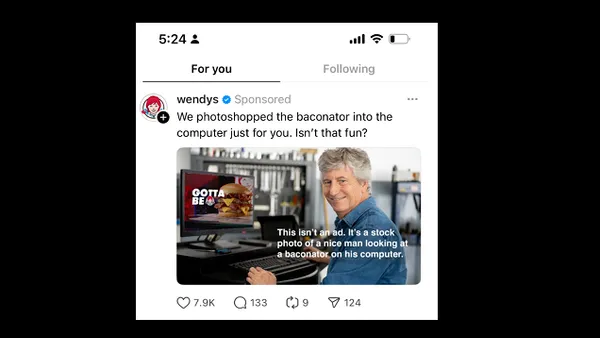Dive Brief:
- To achieve lead generation goals, 47% of marketers see social media as the most effective tactic, and 46% are embracing email marketing, according to findings of Ascend2’s new study “Generating and Nurturing Leads to Create Demand," which was provided to Marketing Dive. Other effective tactics include content or video marketing (39%), SEO (38%) and paid search or display ads (30%).
- For lead nurturing, 47% said email marketing was the most effective tactic, followed by video marketing (45%), social media marketing (40%), web personalization (33%) and SEO (33%).
- The effectiveness of digital lead generation is improving, according to 84% of marketers, and 38% say it is improving significantly. Twelve percent say the effectiveness is worsening.
Dive Insight:
The Ascend2 study highlights the ways that marketers continue to embrace digital marketing to generate leads and foster relationships with those expressing interest. The findings are in line with other research showing where marketers are allocating their budgets, as 82% plan to increase their digital spending over the next year by an average of 49%, and 73% listed search and social as the most important channels, per recent Nielsen data.
As the latest research shows, email marketing continues to be a valuable channel for markets for both lead generation and lead nurturing, since the format allows for greater levels of personalization. Email is one of the most powerful tools for engaging consumers and generating high levels of ROI. But, previous research has revealed a disconnect between how marketers view their email campaigns and how recipients perceive the messaging. About 70% of marketers use email in promotions, but just 8% of consumers are “very satisfied” by the efforts, according to an Adobe-commissioned study by Forrester released in June.
Social media has commanded a large part of marketers’ digital budgets, as many are attracted by the ability to reach large groups of consumers. Consumer satisfaction in social media continues to drop, and platform changes could impact how marketing messages are delivered to consumers. Marketers had speculated that organic reach on Facebook would become nearly nonexistent after the platform changed its News Feed algorithm that prioritized user posts.














